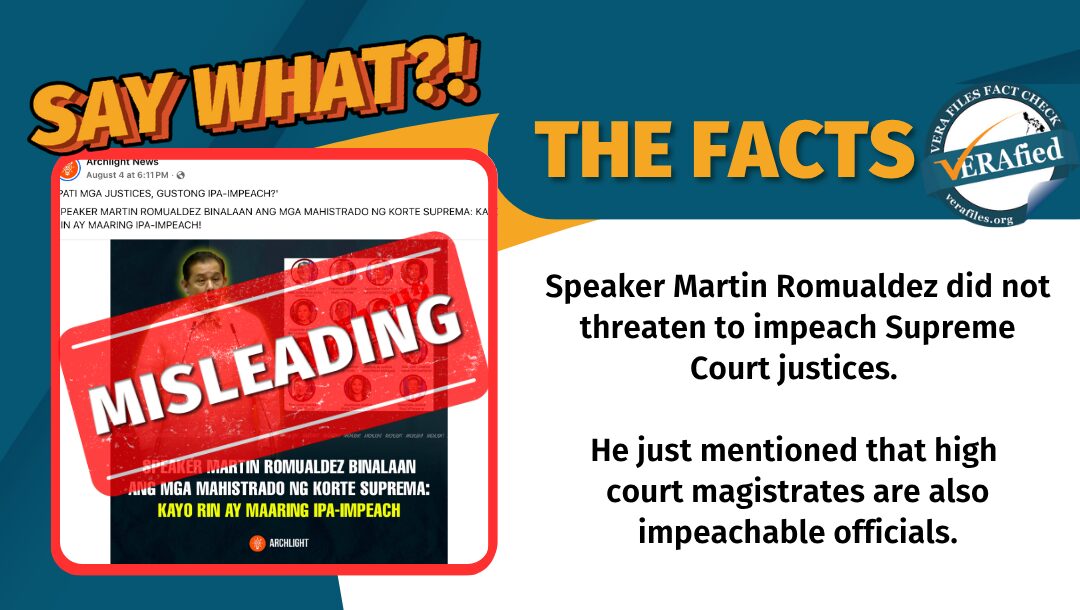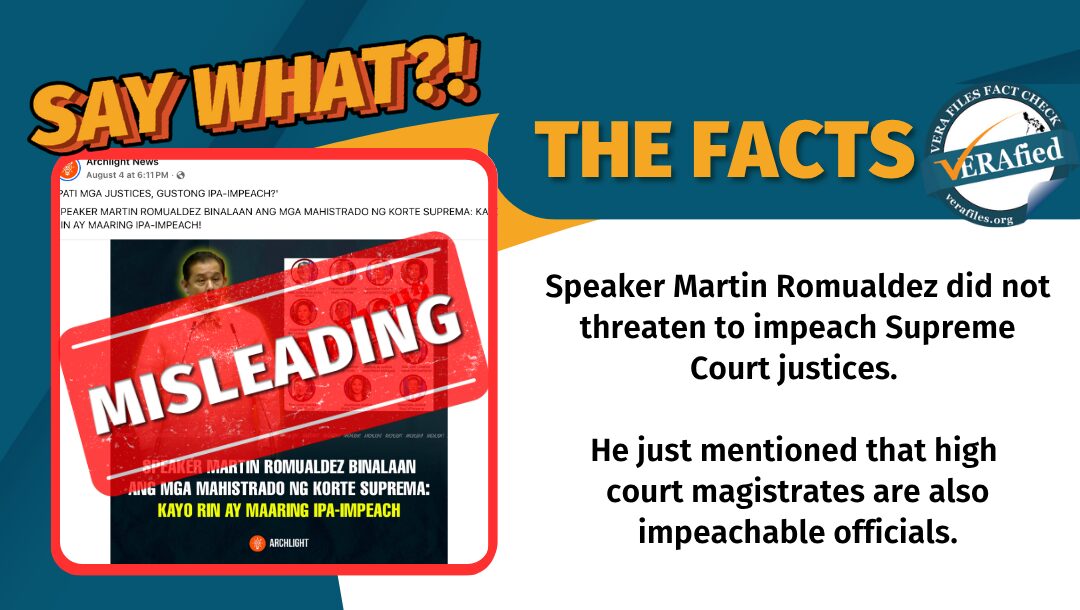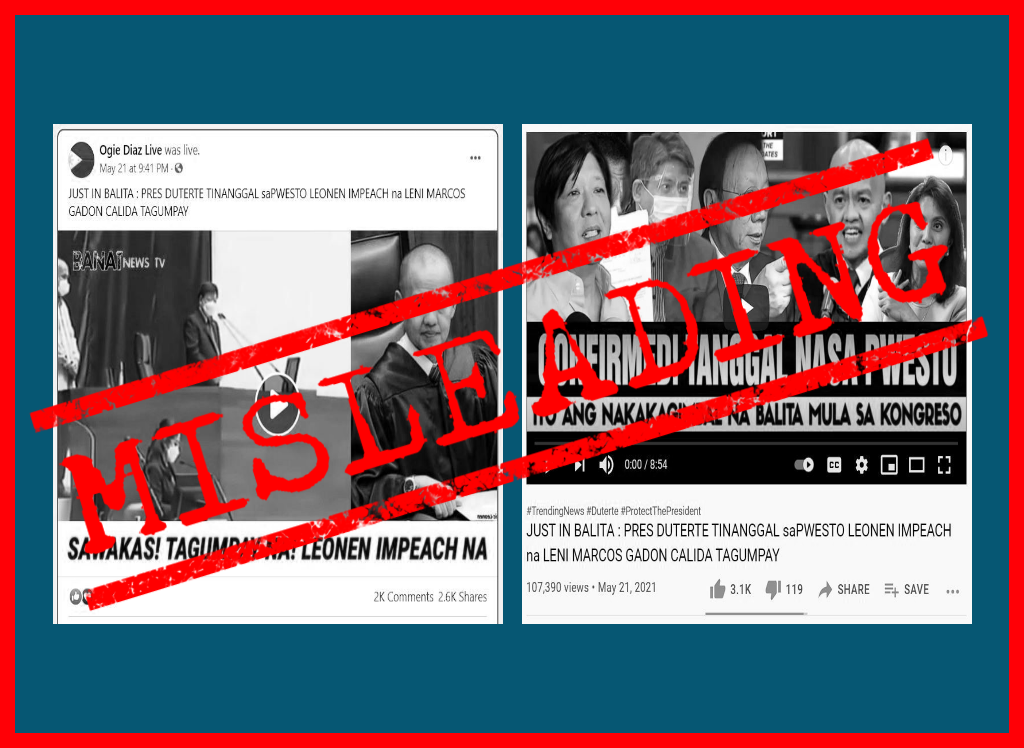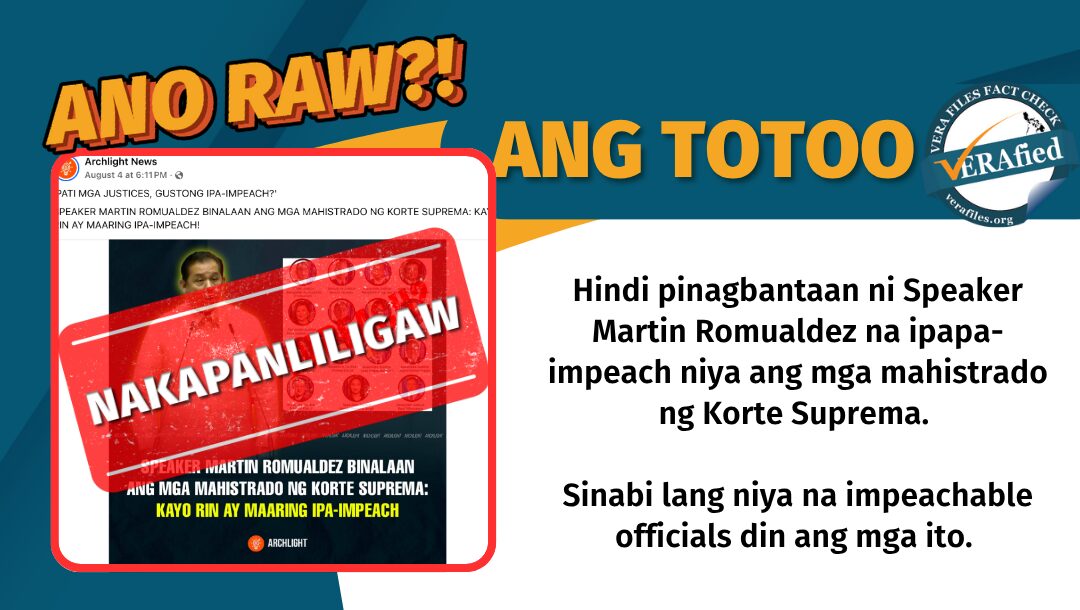A Facebook post claims that House Speaker Martin Romualdez threatened to impeach the justices of the Supreme Court, following their unanimous decision to declare unconstitutional the impeachment of Vice President Sara Duterte. This is misleading.
Romualdez did not make such a threat. He only expressed concern about how SC justices, who are impeachable officials themselves, have set conditions for a process they could also be subjected to.
Uploaded on Aug. 4, the post read:
“’PATI MGA JUSTICES, GUSTONG IPA-IMPEACH?’ SPEAKER MARTIN ROMUALDEZ BINALAAN ANG MGA MAHISTRADO NG KORTE SUPREMA: KAYO RIN AY MAARING IPA-IMPEACH!”
(He even wants justices to be impeached? Speaker Martin Romualdez warned magistrates of the Supreme Court: You can also be impeached!)

In a video statement released on the same day, Romualdez said that the SC may be shielding its members and other impeachable government officials from responsibility:
“The Supreme Court is a co-equal branch of government. Its wisdom is deep. Its authority is real. But its Members—like the President and the Vice President—are also impeachable officers. When the Court lays down rules for how it, or others like it, may be impeached, it puts itself in the dangerous position of writing conditions that may shield itself from future accountability.”
In a July 25 decision penned by Senior Associate Justice Marvic Leonen, the court unanimously declared that Duterte’s impeachment is unconstitutional for violating the one-year bar rule and the right to due process.
When impeachment proceedings are initiated by at least one-third of House members, the SC also laid down seven rules that must be followed. These are:
- Including the evidence in the Articles of Impeachment that will be shared with members of the House of Representatives
- Ensuring that evidence is sufficient to prove the charges in the impeachment articles
- Making impeachment articles and supporting evidence available to all House members
- Giving the respondent a chance to be heard in the House before transmitting the impeachment complaint to the Senate
- Giving the House reasonable time to reach their independent decision on whether to endorse the complaint or not
- Ensuring that charges are based on impeachable acts or omissions committed by the respondent in relation to their office and during their current term
- Providing the respondent with a copy of the impeachment articles and supporting evidence
In its motion for reconsideration filed on Aug. 4, the House argued that there is no need for such rules because these are “plainly beyond the contemplation of the Constitution.”
The House added that no further action on its part is necessary once the required one-third of its members sign the impeachment complaint.
Uploaded by FB page Archlight News (created May 24, 2018 as Hoy GWAPA), the misleading post got 7,900 interactions.






